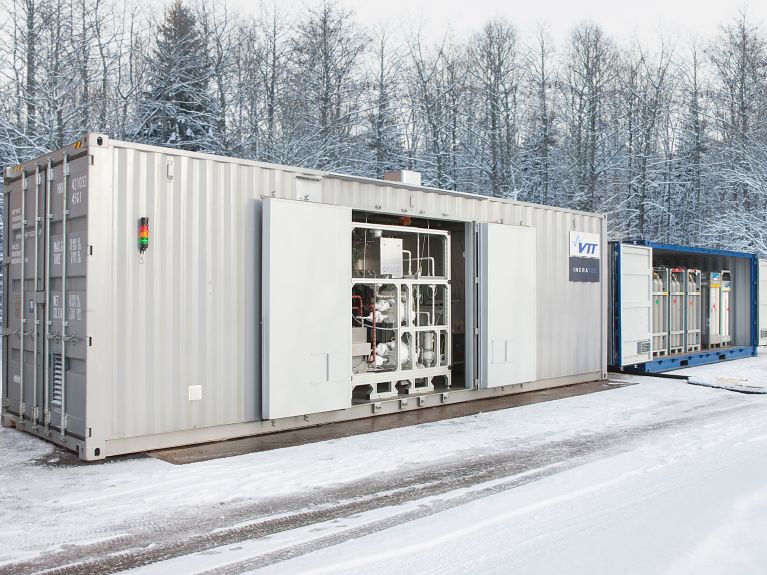Fuel out of air
A good idea from Germany: a young company in Karlsruhe converts CO2 into clean fuel. Here is how this technology of the future works.

Germany. Solar energy and carbon dioxide (CO2), green electricity and greenhouse gas: this doesn’t sound exactly like a dream partnership. And yet these two elements can be used to produce a new and environmentally friendly fuel. To this end, the three young engineers Tim Böltken, Philipp Engelkamp and Paolo Piermartini at the Karlsruhe Institute of technology (KIT) founded the company Ineratec.
What is the idea?
Carbon dioxide is a natural component of the air. But it is threatening for the global climate in the form of unnaturally high, man-made CO2 increase. Combined with hydrogen, CO2 can be converted into petrol, diesel and kerosene; the required hydrogen can be obtained from solar electricity by means of electrolysis. The fuels produced in this way are climate-neutral because only as much CO2 can be released back into the environment as was previously extracted from it.
What is the technical challenge?
This process needs a complex combination of various production units, and a chemical reactor that could make liquid fuel out of carbon dioxide and hydrogen in the end was until recently hardly imaginable – at least in the size that allows it to work usefully with the other production units.
What is the solution?
The university start-up succeeded in producing a chemical reactor that can be implemented in a ship container. This paved the way for a European cooperation. In Finland, the first 200 litres of synthetic fuel have now been produced. The unit from Karlsruhe stands next to a “Direct Air Capture” unit, which filters carbon dioxide from the air, and an electrolysis unit, which supplies the hydrogen from solar energy. Interest in the new type of power plant is considerable.

What’s next?
One pilot project is not about to stop climate change. But there are already further plans. Using a Swiss plant equipped with the Ineratec unit, the German carmaker Audi wants to produce 400,000 litres per year of so-called e-diesel beginning in mid-2018. It is planned that this diesel will find its way onto the normal market through partnered petrol stations.
Further information: Ineratec
